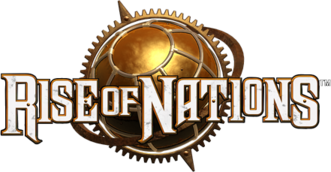| Unit Information | Game Strategies | History |
Solduri are the German unique Heavy Infantry of the ![]() Ancient Age. Like all infantry, Solduri are trained and upgraded at the Barracks, replacing the standard Hoplites. Besides the researching of
Ancient Age. Like all infantry, Solduri are trained and upgraded at the Barracks, replacing the standard Hoplites. Besides the researching of ![]() Military 1 (The Art of War) in order to build a Barracks, there is no requirement for recruiting Solduri.
Military 1 (The Art of War) in order to build a Barracks, there is no requirement for recruiting Solduri.
Overview
Compared with Hoplites, Solduri have +10 hit points, +1 armor, and their base building time is 1.8 seconds faster (10.7 seconds instead of 12.5 seconds). They are also one of the best besieger units of its age: While Hoplites have a 12% damage penalty against buildings, Solduri do not. Their additional armor also means they survive longer against cities, towers, and enemy units; and their faster recruitment means that a German army will replenish or bolster their Heavy Infantry faster than other nations. This makes Solduri better for Ancient Age rushes and overall offense.
Unit Costs
Unit production cost increases progressively with every Barracks unit on the field or currently in production. The default increase is of 1 ![]() Food and 1
Food and 1 ![]() Timber for the second unit created, and grows exponentially from then on. Once the
Timber for the second unit created, and grows exponentially from then on. Once the ![]() Classical Age is reached, all costs in
Classical Age is reached, all costs in ![]() Timber will be replaced by
Timber will be replaced by ![]() Metal. Upgrading this unit costs double the base cost of the unit it will upgrade to; this means that the upgrade to Barbarians has a cost of 100
Metal. Upgrading this unit costs double the base cost of the unit it will upgrade to; this means that the upgrade to Barbarians has a cost of 100 ![]() Food, 60
Food, 60 ![]() Metal. It's important to note, however, that these prices are the default standard, and actual production and upgrading costs may differ, depending on researched technologies/ages, connected rare resources, or adopted governments.
Metal. It's important to note, however, that these prices are the default standard, and actual production and upgrading costs may differ, depending on researched technologies/ages, connected rare resources, or adopted governments.
Trivia
- "Solduri" is the plural name for the members a warrior band in which every two comrades pledged to protect one another in battle, defending each other to the death. These fierce bands of warriors were of Celtic tradition however, not Germanic.
- The name of these fierce warbands is also a likely origin for the modern English word "Soldier".
